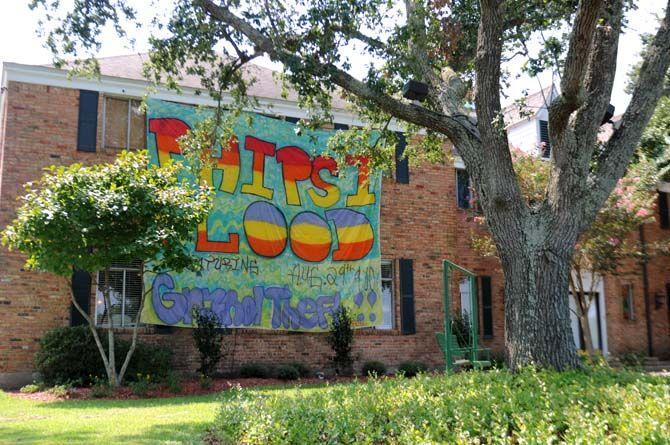A recent hazing incident that led to one student’s hospitalization and another student’s death has sparked a dialogue that echoes campus conversation following Max Gruver’s death in 2017. Students have called for Student Government and University administration to take action against hazing.
Student Government Vice President Hannah Barrios said she and other students are tired of hazing in the LSU community.
“As a member of Greek Life, I find it so disappointing to see that hazing is still occurring,” Barrios said. “SG has to reiterate again and again that hazing is absolutely not tolerated at LSU. I know LSU has said this and SG has said this, but hazing keeps happening. It simply should not be a part of our culture and our community.”
All members of LSU student organizations must go through mandatory hazing prevention training. This year, the 30-minute virtual training sessions take place on Moodle. In-person hazing prevention training is usually offered, but the pandemic forced the University to offer virtual training exclusively.
“I think in-person training is very effective,” Barrios said. “It’s more effective than virtual training, but I’m glad LSU implements that virtual training because some sort of training is obviously necessary.”
Mass communication junior Abby Alonzo said virtual courses clearly do not stop hazing behavior.
“I can tell you we all click through the Moodle trainings,” Alonzo said. “The quizzes aren’t hard at all. I understand they’re trying to prevent hazing with these trainings, but they do not work.”
An LSU fraternity member who wished to remain anonymous said mandatory hazing-prevention efforts need “serious reconsideration” to have a positive effect.
“Given that hazing training is the most involved it’s ever been and we still had [this recent hazing incident], these trainings do not help at all,” he said. “They’re just busy work that guys do without paying attention. It’s just checking off a box. It’s unrealistic to think that any Moodle training is going to make irresponsible people into responsible people.”
Barrios and SG President Stone Cox said that while SG has no hazing prevention initiatives currently in the works, recent events have compelled them to consider possible plans of action.
“We are very aware of this, and we’re listening to students,” Barrios said. “After recent events, Stone and I have talked about what we can do in conjunction with our Department of Safety to go over initiatives we can bring forward. We’re going to look at other campuses to see what efforts they’re making that we can learn from.”
The passage of the Max Gruver Act in 2018 implemented harsher legal penalties for hazing. A student found guilty of hazing can face a felony charge and time in prison, along with fines. Alonzo said the threat of legal consequence has not effectively deterred hazing at LSU.
“They feel like they’ve earned the right to put the pledges through hell because they went through it,” Alonzo said. “Is it worth your whole future to get a boy to drink an entire bottle of whiskey? So you get an 18-year-old boy really drunk one night. What comes out of that? You can lose your future, your career and possibly end someone’s life, and for what?”
Barrios said students are aware of what hazing behavior looks like, and they’re tired of the emotional toll it takes on the community. She said SG will make efforts in the future to eradicate hazing in student organizations.
“We’re going to figure out something because [hazing] is just unacceptable,” Barrios said. “SG is here to give students the safe experience they deserve at LSU and I promise we’re working to do exactly that.”
SG has put together a Night of Remembrance to honor the students that have died this semester, and all students are welcome to attend. The memorial will be on Nov. 12 from 6:30 to 8:30 p.m. in the Greek Theater. Due to COVID-19 regulations, students are asked to RSVP through TigerLink.
LSU Student Government members respond to recent hazing incident
November 9, 2020
Phi Kappa Psi hang a controversial banner in relation to their party on Aug. 29, 2015.







